"For the succour and relief of veterans..."
Gary Lashko (1976) is CEO of the Royal Hospital Chelsea, the home of the Chelsea Pensioners. We spoke to him to find out about his role within this iconic organisation.
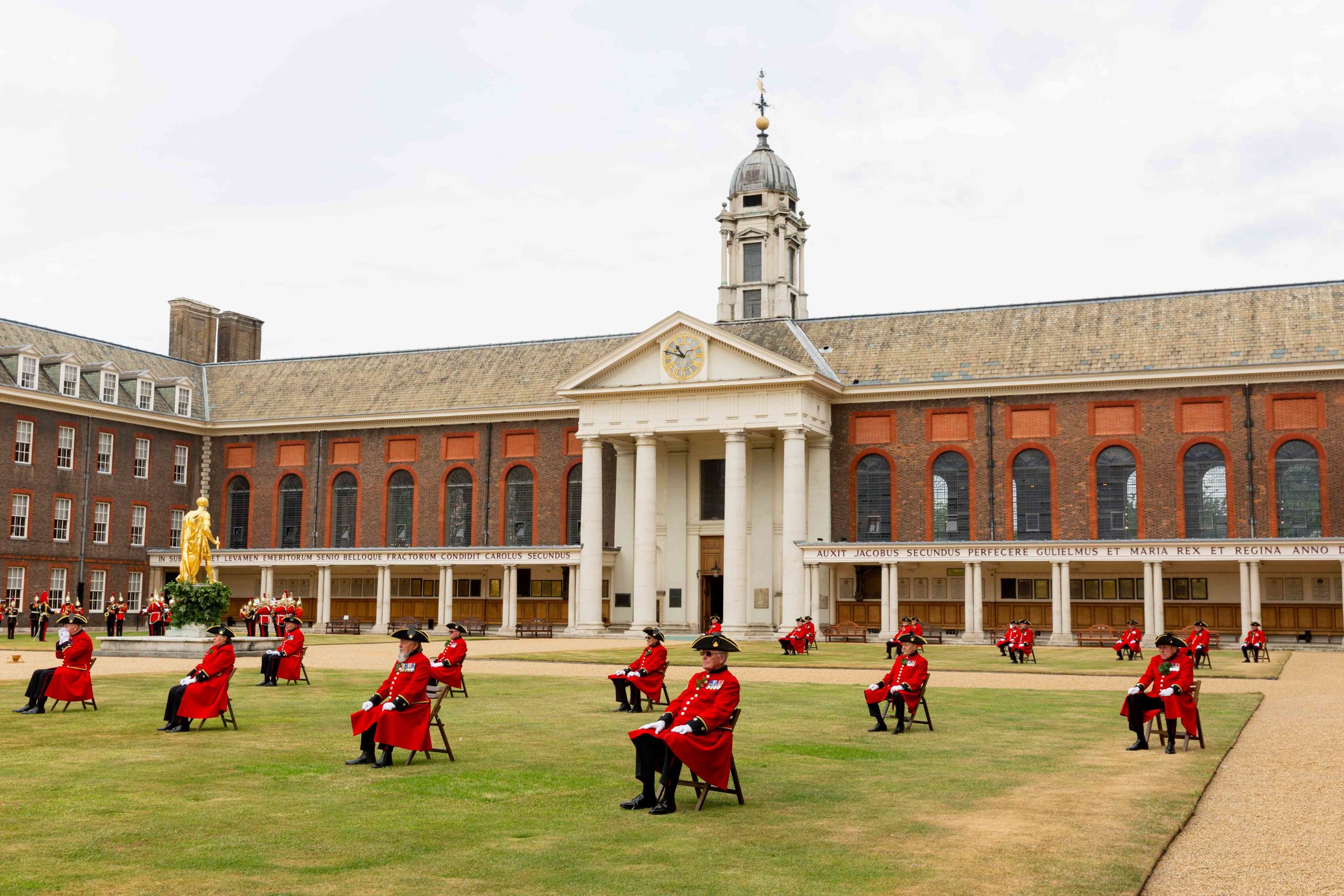
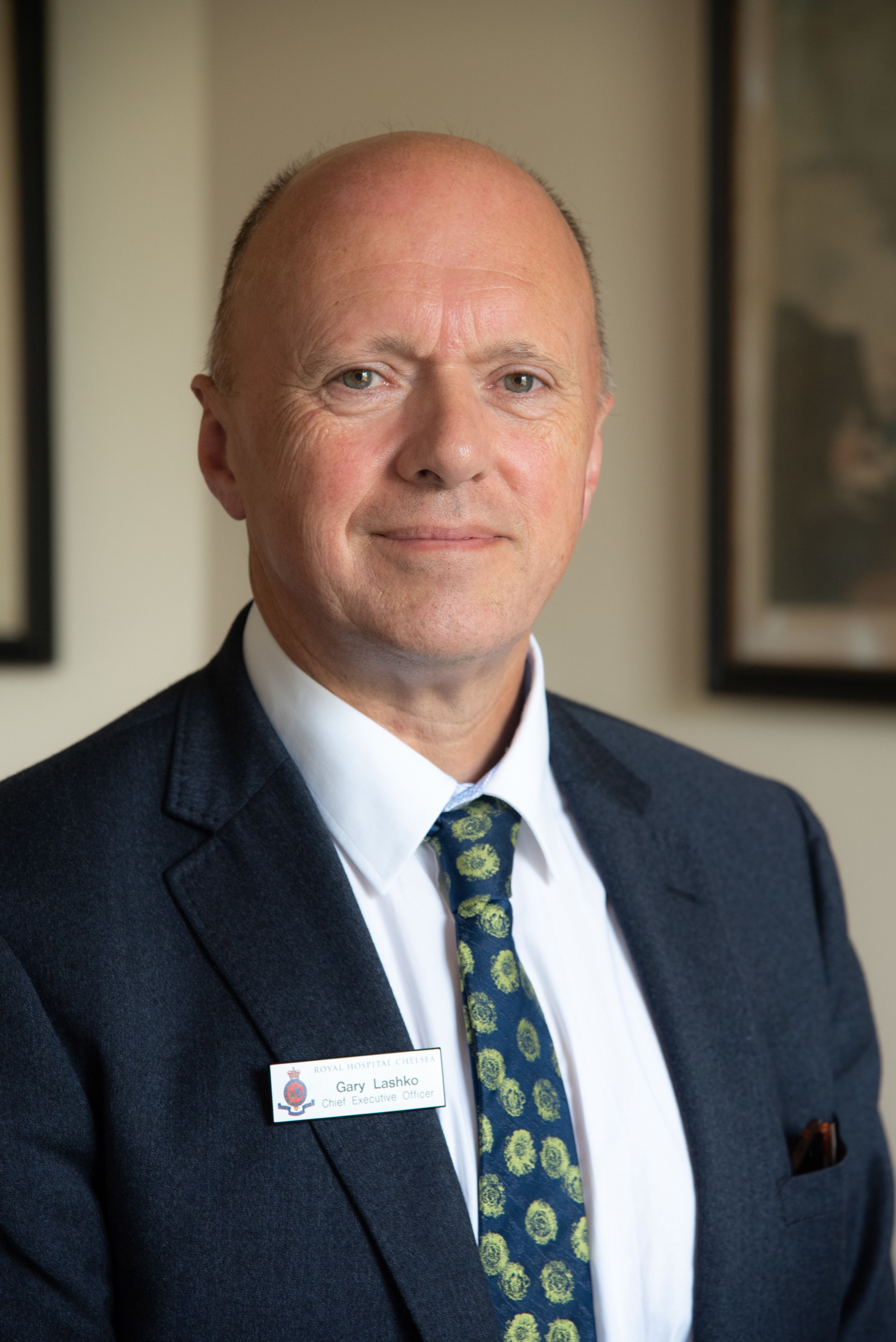
Gary Lashko (1976)
Gary Lashko (1976)
For those who may not be familiar with it, could you describe what the Royal Hospital does and tell us a little about its residents?
The Royal Hospital Chelsea is a retirement and nursing home for 300 ex-British Army soldiers, including 14 women. Founded by King Charles II in 1682 – his gilded statue commands our main courtyard – the Royal Hospital’s doors opened in 1692 “for the succour and relief of veterans broken by Age and War”.
Built by Sir Christopher Wren and added to by Sir John Soane, the Hospital sits in 66 acres of grounds, where the Chelsea Flower Show has been held since 1913. Its features include the delightful Wren Chapel Choir, which welcomed members of the public pre-COVID-19 and looks forward to doing so again when circumstances are safe.
The Royal Hospital’s Commissioners (‘trustees’) are appointed by the Queen. It is run on military lines, with a Governor who is a four-star General, a Quartermaster, Company Captains and a Regimental Sergeant Major. However, at root it is a retirement community with a nursing home rated Outstanding by the Care Quality Commission. As well as ex-military staff, we have an excellent care team, resident GP, occupational therapists and physiotherapists. There is an on-site club, as well as a post office, shop and café that were previously open to the public.
A Chelsea Pensioner must have served in the British Army and be
of pensionable age, without dependants and of good character. Above all, they must be keen to return to a communal way of life, which will address difficulties in their current circumstances, such as bereavement or isolation. Chelsea Pensioners must surrender their Army pension (and any War pension). In ordinary times, Chelsea Pensioners – who come from many regiments and across the UK – can be seen out and about at sporting events, regimental ceremonies and Remembrance commemorations.
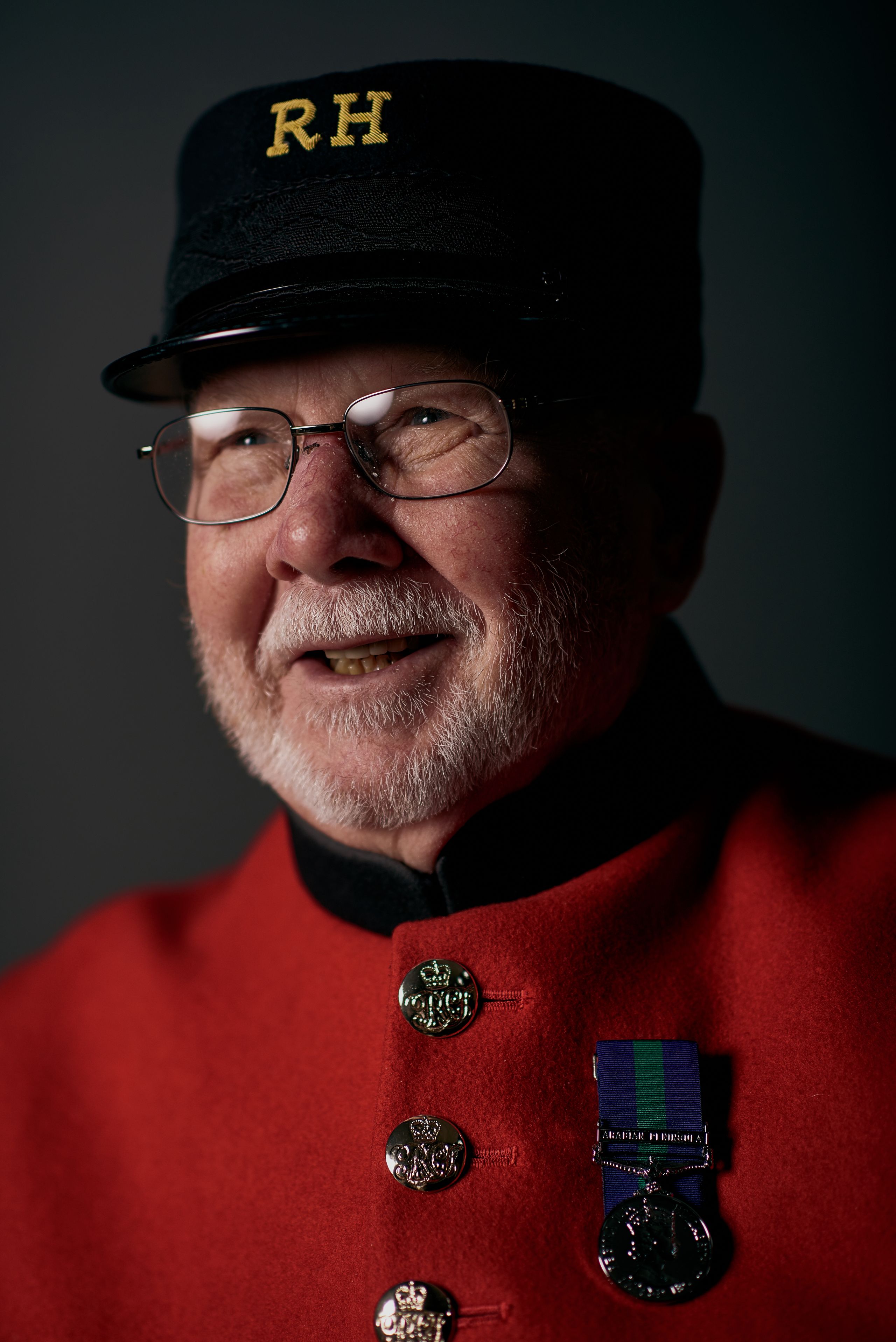
How did you first become associated with the Royal Hospital? Did your time at Clare influence your journey to get here?
I was invited to apply for the job of CEO in 2016, because I had spent most of my working life in the supported housing and care sector, with a focus on capital development and property maintenance. My experience included seven years at Centrepoint Soho, which supports homeless young people. Later, I worked for a regional housing association (CHS Group in Cambridge), where my responsibilities included overseeing older peoples’ services.
My time at Clare fostered an ability to network with a wide range of people and exposed me to British culture in the widest sense. Collegiate life also gave me an insight into the benefits of communities where staff live on site. After all, Wren based his design for the Hospital on a college.
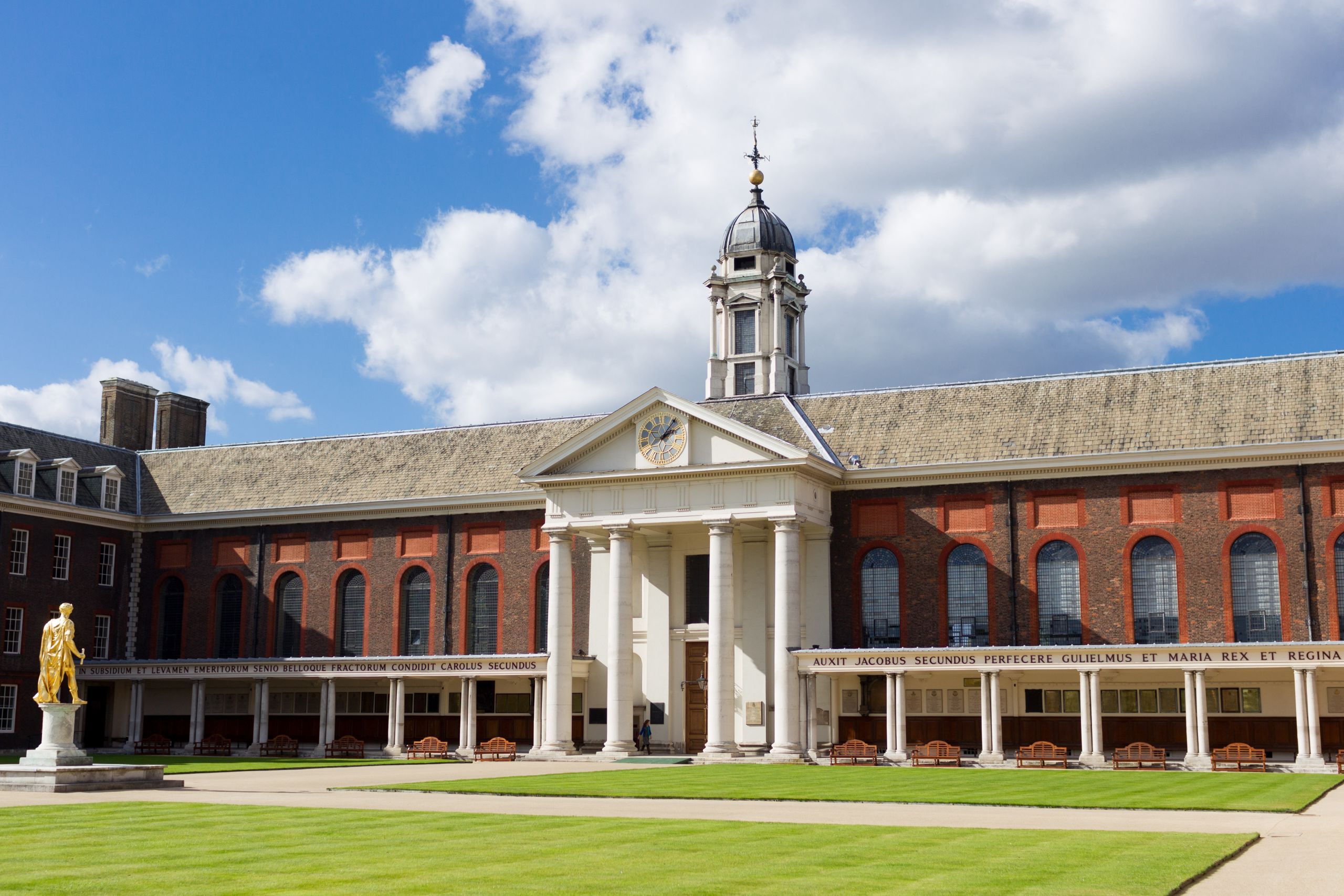
What does an average working week look like for you?
Each week, as well as the usual organisational activities, there are multiple requests for Chelsea Pensioners to participate in ceremonial and promotional events, or for events to be held on our site. We’ve prepared for everything from filming for Paddington 2 and a delivery of cakes from the Hungarian Embassy, to a meeting of Foreign and Defence secretaries from the UK and Australia, including Boris Johnson.
I might also be spending time planning for things like the Chelsea History Festival, run jointly with the National Army Museum, and Chelsea Physic Garden.
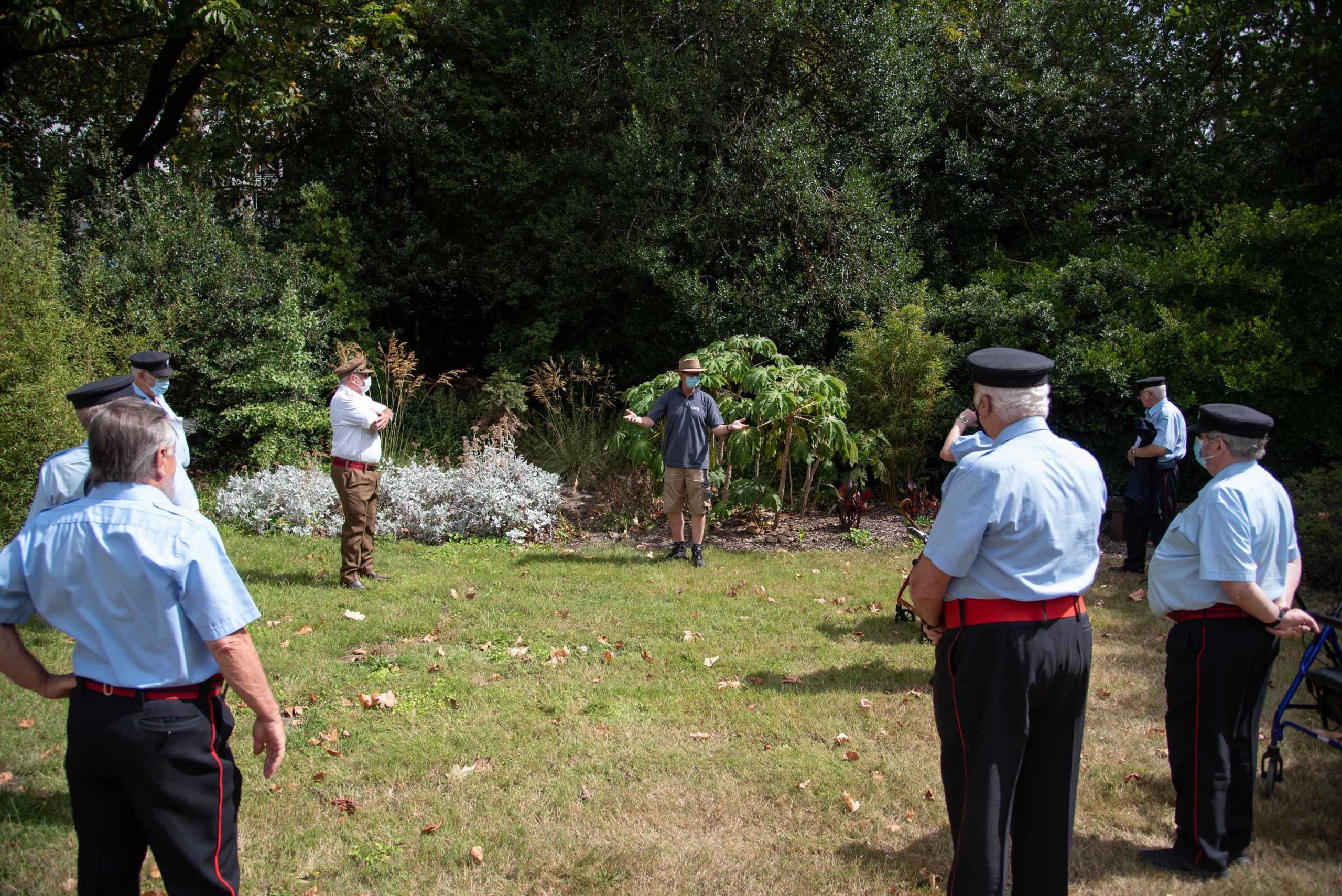
Grounds manager Ric Glenn giving a talk on the Hospital's trees
Grounds manager Ric Glenn giving a talk on the Hospital's trees
The Royal Hospital has a very rich history spanning over 300 years. Tell us about some of its traditions and rituals, and the significance behind them.
Annual events include the Stirring of the Pudding, the Cake Ceremony (Australia), and Pancake Day, courtesy of Canadian diplomatic and military personnel. The ceremony of Christmas Cheeses (Dairy UK) revives an early tradition when local cheesemakers donated their wares to the Pensioners.
Remembrance Sunday is significant, because the core of our mission is to honour the contribution of soldiers to the nation. The highlight of our calendar is Founder’s Day, a celebration of King Charles II’s birthday and his escape from the Parliamentarian Army by hiding in an oak tree. Attended by 4,000 people – from friends and family to dignitaries – a parade of Pensioners, reviewed by a member of the Royal Family, is followed by a big party!
How has the Royal Hospital evolved in recent years, and what challenges is it currently facing?
The Royal Hospital is an incredible model of integrated health and social care. At its core is a strong motivation to maintain personal standards, foster an active lifestyle, nurture human interaction, and value pride and purpose.
Our current challenges are to stay relevant, deliver more impact, demonstrate our effectiveness, and sustain our business model. As nearly 50% of our income comes from commercial activity, we currently face severe challenges posed by the COVID-19 pandemic.
What has been your proudest achievement from your time at the Royal Hospital?
Setting up a Directorate of Health and Wellbeing to ensure we deliver the maximum benefit to the Chelsea Pensioners in a holistic and integrated way.
Do you have any advice for Clare members interested in pursuing a career in the charitable sector?
Follow your interests and what inspires you, regardless of current fashions or the perceptions of others. Volunteer in that area of work and learn as much as you can. In interviews, show that you have considered how the organisation’s impact can be improved, that you understand the work and can contribute your own ideas. Show your passion.

